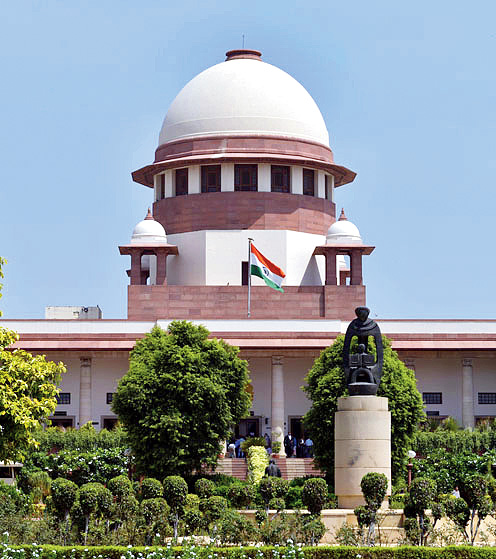The Supreme Court on Monday sought the response of the Centre and Assam government on two separate petitions challenging certain provisions of the Foreigners (Tribunals) Amendment Order, 2019, issued on May 30, as violating the fundamental rights of those claimants who have not been included in the draft NRC or will be out of the final NRC for the state.
The deadline for finalising the final NRC is July 31.
A bench of Chief Justice Ranjan Gogoi and Justice Deepak Gupta, while issuing notices on the petitions filed by the All Assam Minorities Students Union and the Jamiat Ulema-e-Hind, posted the matter for further consideration after four weeks.
The petitioners submitted that the May notification was in stark violation of the fundamental liberties of a large number of persons — guaranteed under Article 19 (freedom of speech and right to live in any part of the country) and Article 21 (personal liberty) — who have either not been included in the draft National Register of Citizens being updated for Assam and those who will be preferring an appeal after their non-inclusion in the final NRC and rejection of their claims.
According to the petitioners, the Amendment Order, 2019, while providing a procedure of appeal makes the same so unreasonable that it may lead to denial of justice.
For instance, the newly-inserted Paragraph 3A of the Amendment Order, 2019 under Clause (1), provides that a person may file an appeal only upon production of a certified copy of the rejection order received from the NRC authorities, along with the grounds of appeal.
This is in striking contrast to Paragraph 8 of the Schedule to the 2003 Original un-amended Rules, which provides a period of 60 days from the date of order of rejection of claims/objection, as the time during which a person shall prefer an appeal.
In other words, no specific time limit is provided by the current amendment for filing the appeal.
“The impugned provisions of the Amendment Order, 2019, provide that such a person may prefer an appeal only upon production of the certified copy of the rejection order, thereby leaving an ambiguity between Paragraph 8 of the Schedule to the 2003 rules and the procedure prescribed under the impugned provisions of the Amendment Order, 2019. Further, there is no provision for condonation of delay; neither any safeguard is provided that the NRC authorities are obligated to issue a certified copy of the order in a time-bound manner,” the petitioners submitted.
The petitioners also complained that Clause (10) of Paragraph 3A of the Amendment Order, 2019 stipulates that it is only if the foreigners tribunal, upon production of records by the district magistrate concerned, finds merit in the appeal that the tribunal may issue a notice for hearing the appeal. This thereby means that the appeal may also be rejected on the threshold by the tribunal without even granting an opportunity for hearing to the appellant.
“It is submitted that while the tribunals have been entrusted with a very crucial task of being the final adjudicatory authority with respect to appeals arising out of rejection of claims by the NRC authorities, the purpose of setting up such tribunals for identification of foreigners and determination of Indian citizenship will stand frustrated if unfairness, unreasonableness and arbitrariness is allowed to creep into the procedure and to thwart the entire gigantic exercise,” the petition filed by the minority students union through advocate Fuzail Ahmad Ayyubi stated.











